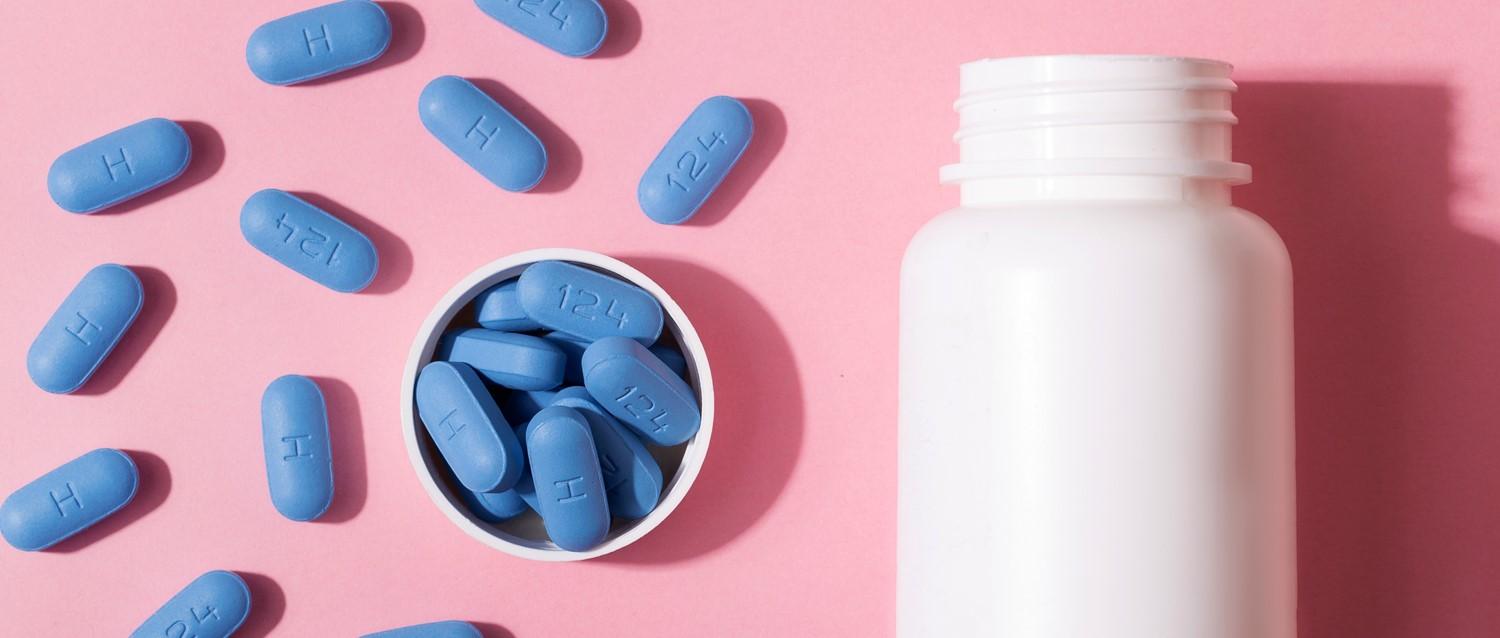
First long-acting injectable HIV treatment approved
Peer reviewed by Dr Sarah Jarvis MBE, FRCGPLast updated by Amberley DavisLast updated 29 Nov 2021
Meets Patient’s editorial guidelines
- DownloadDownload
- Share
- Language
- Discussion
For people living with HIV, the only treatment options to date have been in oral tablet form. Although effective, this method is reliant on a person taking the tablets daily and exactly as prescribed, which can lead to user error and contribute towards psychological problems around stigma. An alternative method - the first long-acting (long-lasting) injection - has just been approved for England and Wales.
In this article:
Continue reading below
First long-acting injectable HIV treatment
"It's incredible news for people living with HIV in England and Wales that they will be able to access the first long-acting injectable treatment on the NHS as an additional HIV treatment option," says Debbie Laycock, head of policy at Terrence Higgins Trust (TRT).
Approximately 13,000 eligible people in England and Wales will have an alternative to daily tablets for the first time, after the National Institute for Health and Care Excellence (NICE) approved the new treatment in November 2021:
"We're pleased to be able to recommend cabotegravir with rilpivirine as a valuable treatment option for people who might prefer an injectable regimen with less frequent dosing."
Benefits of new HIV treatment
Since the 1990s, most people in the UK have led long and healthy lives while living with HIV (human immunodeficiency virus) thanks to the effectiveness of antiretroviral medication. This HIV treatment, known as antiretroviral therapy (ART), works by stopping the virus from copying (replicating) itself.
By keeping the number of virus particles in the blood low, a person's immune system is no longer weakened, and they are unlikely to develop infections. Importantly, if their virus levels are low enough (termed 'undetectable'), they cannot transmit HIV to someone else. Until now, ART has been administered in the form of tablets that are typically taken either once or twice a day.
What are the limitations of ART tablets?
They must be taken every day as prescribed to remain effective and to prevent the virus from becoming resistant to the drugs.
Some people experience drug-related side-effects and toxicity.
Daily treatment can be difficult for mental health when coping with the stigma that still surrounds HIV.
Daily HIV treatment is a big lifestyle adjustment, impacting routine and relationships.
Now, clinical trial results show that two injections which only need to be administered every two months are as effective as daily oral tablets at keeping the virus particle count low. The medicines cabotegravir (also called Vocabria) and rilpivirine (also called Rekambys) are injected into the patient after an initial period of tablets.
Not having to manage HIV on a daily basis has key benefits
It eliminates patient error (injections will be carried out by healthcare professionals).
It may make HIV treatment easier and less impactful on day-to-day life.
It could potentially make life easier for those who struggle with HIV stigma (for example, not having to think about managing HIV every day, and making it easier for those who wish to hide their HIV status from others).
The perceived benefits of the new injectable HIV treatment are user-focused rather than clinical (the treatment is no more effective at controlling HIV than current methods). As such, last year a survey was conducted on 688 people living with and being treated for HIV, to determine the public response to having an injectable, long-acting option.
Survey: Top three benefits perceived by HIV patients
Not carrying pills will make travelling easier.
Two months of uninterrupted drug efficacy.
Less risk of missing a dose and of subsequent treatment failure.
The survey also shows a promising impact on emotional and mental well-being. Among 304 people who had mental health issues related to having to take daily tablets, 79% felt that the injectable HIV treatment would help. In addition, 88% of people who had confidentiality concerns over taking a pill every day also believed an injection would be beneficial.
Continue reading below
Who will benefit and when?
NICE has recommended the long-acting injection as an option for adults living with HIV who:
Already take ART tablets.
Show no evidence of viral resistance.
Have no previous failure of other anti-HIV medicines - non-nucleoside reverse transcriptase inhibitors (NNRTIs) and integrase inhibitors (INIs).
This brings England and Wales in line with Scotland, who approved the treatment in October 2021. Final guidance from NICE is expected to be published in January 2022, subject to there being no appeals in the preceding period.
What this could mean for people living with HIV
A potential limitation of the long-acting HIV injection is that treatment days require a regular two-monthly visit to a healthcare professional. For some people, this could be less attractive than self-medication.
However, it is significant that two thirds of the people surveyed expressed that they would like to switch to a long-acting injectable HIV treatment. A new HIV treatment that will be easier to take because it is administered less often is likely to have a positive impact on a lot of people's lives.
TRT believes that the people who face the most stigma should be offered the treatment first: "Although we're working hard to tackle the stigma surrounding HIV, this new injectable HIV treatment option could help people in house-shares, for example, who do not wish to share their HIV status and will no longer have to worry about hiding their medication," explains Laycock.
More generally, providing a new HIV treatment method for those who don't like ART tablets (but who have shown no viral resistance) could be an important step towards ending the HIV pandemic:
"Pill fatigue is also an issue for some people living with HIV who struggle with the idea of taking antiretroviral drugs every day," adds Laycock. "Long-acting injectable treatment is also a better option for those who have difficulty swallowing medication."
The more treatment options people have, the better chances there are of eliminating all new cases of HIV by 2030 in England, which was pledged by Matt Hancock when he was serving as Health Secretary.
Patient picks for HIV and AIDS

Sexual health
What not to say to someone with HIV
We've come a long way in developing treatment and prevention techniques but attitudes towards HIV-positive people are still lagging behind. What do people living with HIV wish people would stop saying?
by Milly Evans

Sexual health
Who should take the HIV prevention drug PrEP?
Pre-exposure prophylaxis (PrEP) is a medication to prevent the development of HIV. It's meant for people who don't have HIV, but have a high chance of developing the condition. But what is it, how does it work and who should have access to it?
by Lydia Smith
Continue reading below
Article history
The information on this page is peer reviewed by qualified clinicians.
29 Nov 2021 | Latest version
29 Nov 2021 | Originally published

Ask, share, connect.
Browse discussions, ask questions, and share experiences across hundreds of health topics.

Feeling unwell?
Assess your symptoms online for free